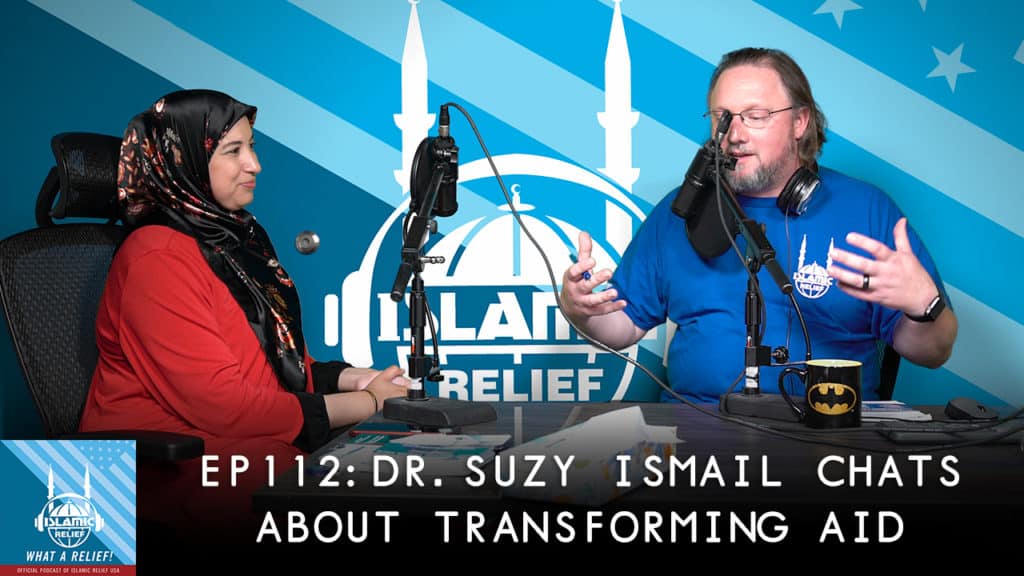
Dr. Suzy Ismail sits down to chat about interventions for healthier communities and aid delivery with host B.C. Dodge in this 112th episode of Islamic Relief USA’s “What A Relief!” podcast.
Dr. Ismail is the founder of Cornerstone Marriage and Family Intervention Centers, a non-profit based out of New Jersey with five offices in that state. The center has additional affiliate offices across the nation, and even in Canada. In this episode, she shares her expertise with IRUSA podcast listeners as a communications, interpersonal, and intercultural professional.
Considering Non-Verbal Communication
The conversation between Dr. Ismail and the host B.C. Dodge begins by centering around the importance of interdisciplinary studies. There are also some shared laughs about both being children in the 1980s.
Ismail mentions that her interest in her field of non-verbal communication started with a mentor and colleague who was known as a “human lie detector.” She further elaborates on the intriguing concept of how a smile or a lack of eye contact in one culture can differ from what it means in another.
But what does this mean for us in our regular lives? Should we be overly aware of the non-verbal communication, namely facial cues, of our families and friends? Maybe not—but the field of non-verbal clues is rapidly changing, especially with handheld smart technology entering the field of human social interactions so often.
Transforming the Face of Aid
The conversation continues until Dr. Ismail astutely asks, “How do you deliver aid in a way that brings a client to a place of emotional resilience?” She comments on individuals she met overseas, who led her to consider the multidimensional experience of refugees. The adrenaline-like experience of being in a camp can leave a person feeling strange about what’s next. This leads Dr. Ismail to begin an interesting commentary on Maslow’s Hierarchy of Needs.
She shares about her work and hope that organizations cannot just deliver aid at the most basic levels of needs (food, water, shelter) but also deliver aid at the highest levels of the human experience. “A way a person lives their life is determined by their world view,” Dr. Ismail shares—so the interpersonal dimension must be considered when delivering aid.
“What is the self-talk a client is going through?” she invites listeners to consider. She then explains how a concept called cognitive restructuring can play a key role in aid delivery, especially in the context of the character trait of resilient.
To hear real life refugee stories, and more about how interpersonal techniques can greatly bolster the work of aid agencies and even our daily interactions, you’ll want to listen in. We invite you to hear all the highly-informed and highly-practical gems from this insightful podcast with Dr. Suzy Ismail.
**And now you can reach out to us at our new email address: [email protected]!**
“What a Relief!” is the official podcast of Islamic Relief USA. Hosted by digital media specialist B.C. Dodge, IRUSA’s “What a Relief!” puts a human face on what’s going on in the world and how you can enact positive change in it. New episodes every week!
LISTEN. SHARE. REPEAT.